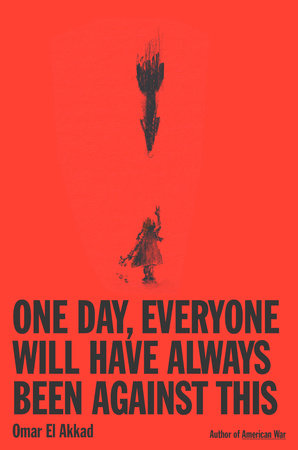More on this book
Community
Kindle Notes & Highlights
Read between
September 6 - September 6, 2025
And this language might protect the empire’s most bloodthirsty fringe, but the fringe has no use for linguistic malpractice. It is instead the middle, the liberal, well-meaning, easily upset middle, that desperately needs the protection this kind of language provides. Because it is the middle of the empire that must look upon this and say: Yes, this is tragic, but necessary, because the alternative is barbarism. The alternative to the countless killed and maimed and orphaned and left without home without school without hospital and the screaming from under the rubble and the corpses disposed
...more
Something has ended here. But something else begins. The dead dig wells in the living.
Rules, conventions, morals, reality itself: all exist so long as their existence is convenient to the preservation of power. Otherwise, they, like all else, are expendable.
Under foreign and then local rule, the central directive never changed: Know your place. It’s a frequent, nauseating political inheritance: come to experience the world under the reign of someone who thinks of you as subhuman, as undeserving of a future, and an ugly impression is settled that true power is the ability to do the same to someone else. The foreigners had departed; there was no one left to do it to but our own.
One of the hallmarks of Western liberalism is an assumption, in hindsight, of virtuous resistance as the only polite expectation of people on the receiving end of colonialism. While the terrible thing is happening—while the land is still being stolen and the natives still being killed—any form of opposition is terroristic and must be crushed for the sake of civilization. But decades, centuries later, when enough of the land has been stolen and enough of the natives killed, it is safe enough to venerate resistance in hindsight.
Once far enough removed, everyone will be properly aghast that any of this was allowed to happen. But for now, it’s just so much safer to look away, to keep one’s head down, periodically checking on the balance of polite society to see if it is not too troublesome yet to state what to the conscience was never unclear.
They say what you’re supposed to do, in this line of work, is comfort the afflicted and afflict the comfortable. I heard that saying a lot, as a young journalist. Believed in it, too. It’s a quote originally from a piece of fiction, spoken by a character who can’t stand the press.
A deranged Republican talking point presented with at best mild rebuke because there are only two major political parties in America and one of them just happens to be populated with the sort of people who muse about whether wildfires are caused by Jewish space lasers. But this is centrism. This is the high-minded middle ground. The only serious, nuanced position, in such circles, is to plant oneself firmly halfway between what is assumed to be the standard left and standard right. Should one party propose stripping immigrants of all rights and the other propose stripping them of only some
...more
But to never see these people in daily life, to never converse with them outside the bounds of interrogation, to never have reason to consider them human in any social sense—these things bleed into the story, or the absence of story. The afflicted don’t need comforting, they need what the comfortable have always had.
When those dying are deemed human enough to warrant discussion, discussion must be had. When they’re deemed nonhuman, discussion becomes offensive, an affront to civility.
Earlier the same day, demonstrators shut down the bridges into Manhattan. As with all such acts of disobedience, the usual cavalry of talking heads emerges to note that these protests only inconvenience people, and that inconveniencing people is not an effective way to change their minds. Never is this logic applied to the past, to the demonstrations that shut down bridges to call for an end to segregation, for example. Because if applied to a moment already deemed righteous in hindsight, such an argument would be shown immediately for its spinelessness. But for now, it’s fine. For now, a
...more
The moral component of history, the most necessary component, is simply a single question, asked over and over again: When it mattered, who sided with justice and who sided with power? What makes moments such as this one so dangerous, so clarifying, is that one way or another everyone is forced to answer.
It is a direct line of consequence from buildings that mysteriously collapse and lives that mysteriously end to the well-meaning liberal who, weaned on such framing, can shrug their shoulders and say, Yes, it’s all so very sad, but you know, it’s all so very complicated.
The problem with fixating on the abyss into which one’s opponent has descended while simultaneously digging one’s own is that, eventually, it gets too dark to tell the difference.


